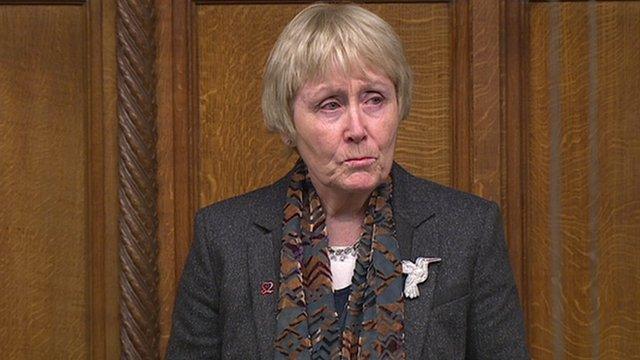Gwenda Owen calls for change in law on 'end of life' choice
- Published
Gwenda Owen: 'I've got another few hard decisions to make pretty soon'
"I have a right to live. I have a right to choose not to live," said Gwenda Owen who was diagnosed with a degenerative condition last year.
The former teacher wants a change in the law so terminally ill patients can choose how to end their lives.
Mrs Owen, 68, from Ruthin, Denbighshire, said she had discussed an "end of life plan" with her three sons and husband John, a minister.
There has been a growing debate about legal changes to allow assisted dying.
Mrs Owen was diagnosed with motor neurone disease (MND) in March 2017.
It is a progressive and terminal disease that damages the function of nerves and muscles, resulting in severe damage to the brain and spinal cord.
"It was a big shock," she told BBC Radio Cymru's Manylu, adding that before the diagnosis she had hoped her health issues were due to "anything but motor neurone".
"With motor neurone I knew time was short," she said.

MND is a progressive disease where nerve function is lost
There are about 210 people with the condition in Wales, according to the MND Association, but the exact number is not known.
Mrs Owen uses a wheelchair and has carers in her home twice a day to provide her with assistance.
She has had a tube fitted in her stomach for the time when she will be unable to chew or swallow.
"It's the future I'm afraid of," she said.
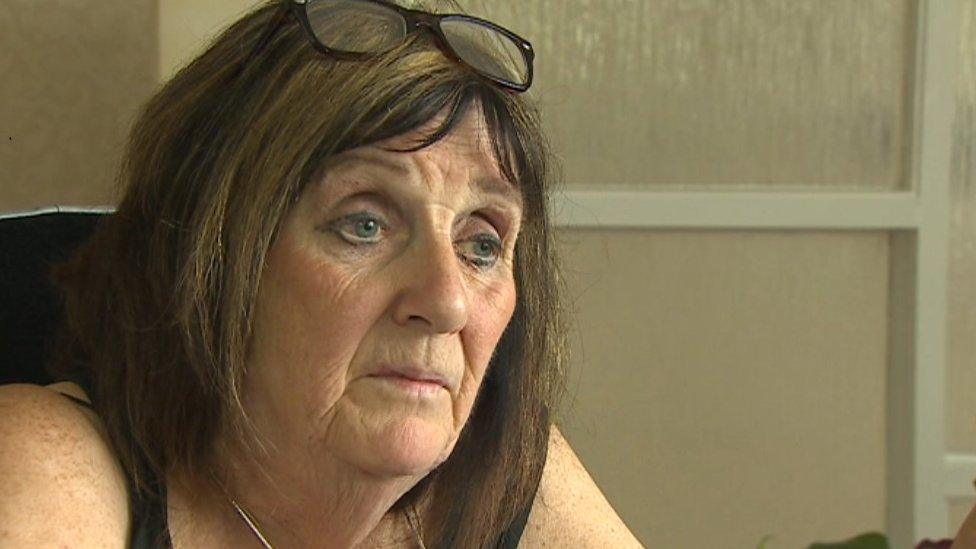
Gwenda Owen: 'I want people to know - even though this has happened to me - I still want to live'
Mrs Owen said she wanted to raise awareness about the condition and did not want people to treat her differently.
"I want people to know - even though this has happened to me I still want to live, I still want to be normal."
But she said she had discussed an "end of life plan" with her family.
Euthanasia and assisted dying is illegal in Wales and England.
The Director of Public Prosecutions published guidelines, external in 2009 suggesting prosecutions were less likely if the act was motivated by compassion.
But disability and pressure groups are adamant there should be no change in the law.
Dr Glenys Williams, a law lecturer at Aberystwyth University, said the arguments against changes were due to "fears that people can be put under undue pressure" and the need to legally protect the welfare of vulnerable people.
"If you allow one thing it could automatically lead to more serious things," she said.
Baroness Ilora Finlay, is a consultant physician in palliative care in Cardiff and one of the country's most eminent end-of-life doctors.
She said: "Our duty all the time is to do all we can to support people to live. When people feel that they've had enough, our role is to support them during their dying.
"That is fundamentally different to changing the criminal law to say that you license doctors to provide lethal drugs.
"Our role as a humane society is to do all we can to enhance quality of life in the face of illness but to accept dying that comes at the end of an illness. That's quite different to killing people."
Mrs Owen feels she and other people in a similar situation should be allowed a choice.
"I'm 100% behind it - there has to be a choice. I have a right to live. I have a right to choose not to live and I'm sticking to that."
'Life and hope'
Her husband said he would support his wife's decision.
"Where there is life there is hope and I'm going to stick to that principle," he said.
"But if Gwenda comes to the decision that she can't face things any more, of course I don't want to lose Gwenda, but I don't want to see her suffering either.
"But if she comes to that decision I will be 100% behind her even though I realise that is not the public or official opinion."
Mrs Owen said, in the 18 months since she was diagnosed, her life has been turned upside down but that she had been helped with family and friends.
"They're here round the clock," she said. "Not just family and close friends, the community, the chapel, the neighbourhood."
She said she had also found support from other people she had met since visiting St Kentigern Hospice in St Asaph, Denbighshire.
"I tell my boys, whatever happens... I'm so lucky that some special people have walked into my life," she said.
"I'm a far better person for getting to know them."
Manylu's 'Motor Neurone and Me' is broadcast in Welsh on BBC Radio Cymru on Thursday, 20 September at 12:30 or you can listen online.
- Published15 June 2018
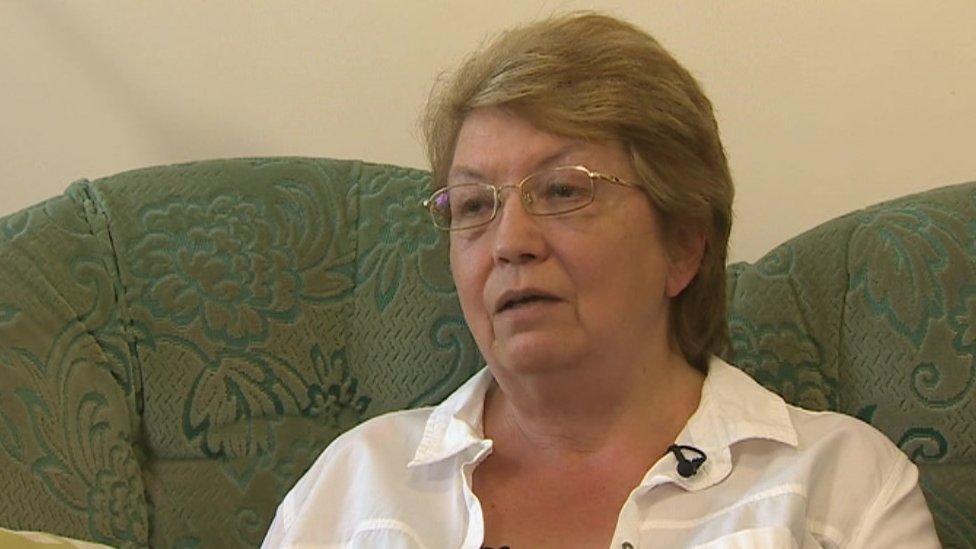
- Published9 August 2018
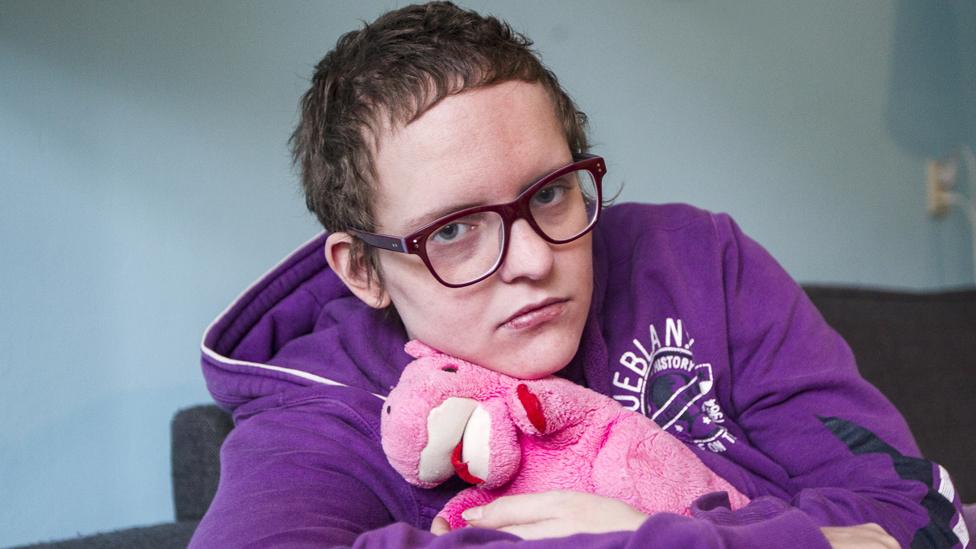
- Published30 July 2018
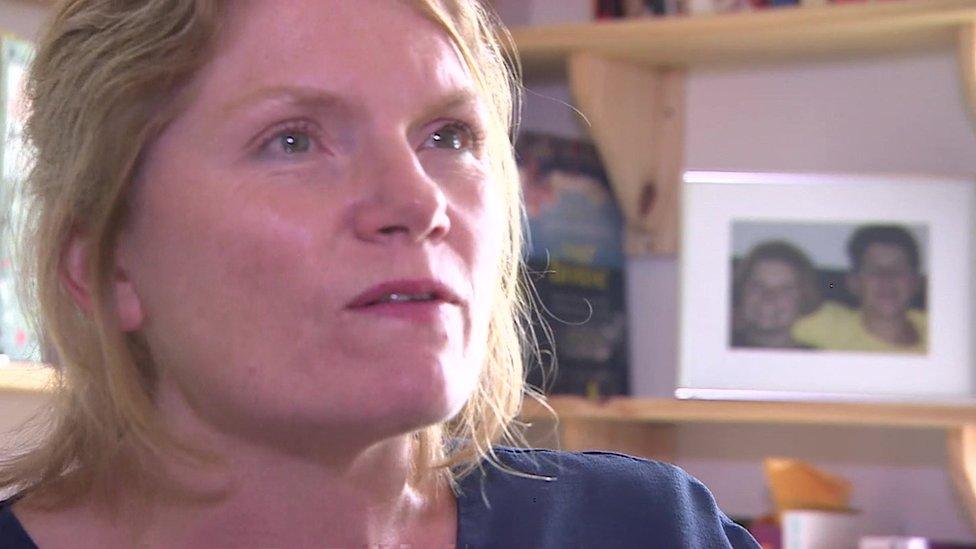
- Published11 September 2015
